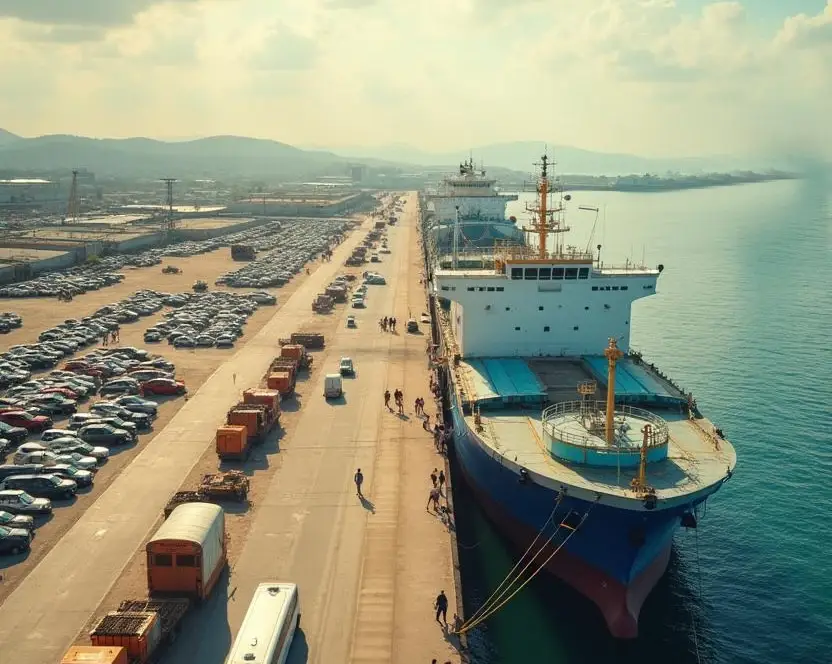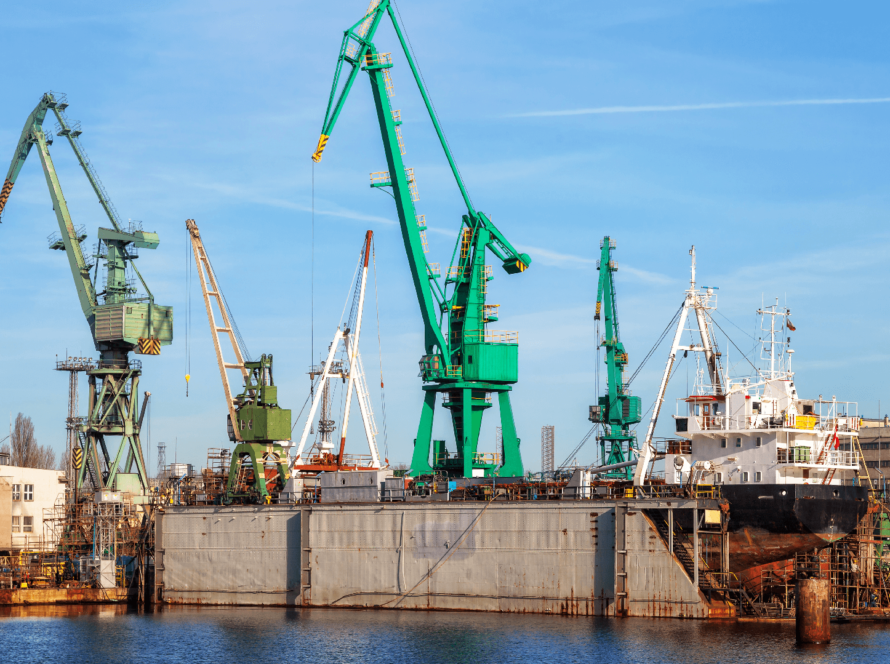Dockyard Arrangement in Sri Lanka: A Vital Part of Maritime Infrastructure
Sri Lanka, an island nation located strategically in the Indian Ocean, has always been a key player in global maritime trade. The country’s dockyard arrangements play a crucial role in supporting both the commercial and naval sectors, positioning Sri Lanka as a vital hub for shipping, trade, and naval operations in the region. This blog post delves into the dockyard arrangements in Sri Lanka, their significance, and how they contribute to the country’s economy and maritime security.
Importance of Dockyards in Sri Lanka’s Maritime Industry
Dockyards in Sri Lanka serve as essential facilities for the repair, maintenance, and construction of ships and vessels. They are indispensable in supporting both commercial and naval activities, including port operations, logistics, and defense capabilities. The strategic location of Sri Lanka along major international shipping routes further enhances the importance of these dockyards, as they cater to a diverse range of industries and global shipping companies. Dockyards in Sri Lanka are vital not only for shipbuilding and repairs but also for the effective handling of maritime cargo, including the maintenance of port infrastructure. In addition, Sri Lanka’s dockyard facilities play a crucial role in enhancing the country’s defense capabilities.
Key Dockyard Facilities in Sri Lanka
1. The Colombo Dockyard
The Colombo Dockyard, located in the capital city, is one of the most well-known and largest dockyards in Sri Lanka. It is a joint venture between the Sri Lankan government and a Japanese consortium, and it specializes in shipbuilding, ship repair, and offshore construction services. The Colombo Dockyard offers a wide range of services, including the construction of vessels, ship repairs, and maintenance for both local and international clients. Over the years, the Colombo Dockyard has become a major center for maritime repair activities in South Asia. Its strategically located position, along with its advanced facilities, ensures it remains an essential player in Sri Lanka’s maritime industry. The Colombo Dockyard is equipped with dry docks, floating docks, and modern repair facilities to cater to a wide range of vessels, including cargo ships, passenger vessels, and even naval vessels.
2. The Trincomalee Dockyard
Another important dockyard in Sri Lanka is the Trincomalee Dockyard, located in the northeastern part of the country. Trincomalee, known for its natural deep-water harbor, has long been a hub for maritime activities. The Trincomalee Dockyard serves as a critical naval base for the Sri Lankan Navy and also provides ship repair and maintenance services for commercial vessels. The strategic location of Trincomalee makes it an ideal spot for both naval and commercial maritime operations. Trincomalee Dockyard has witnessed significant investments in infrastructure development in recent years. This includes the upgrade of facilities for ship repair and the establishment of a strong workforce capable of handling complex maritime operations. The dockyard’s proximity to international shipping routes enhances Sri Lanka’s strategic positioning in global maritime trade.
3. The Hambantota Port Dockyard
Located in the southern part of Sri Lanka, Hambantota Port is one of the country’s newest and most ambitious port developments. The Hambantota Dockyard is an integral part of the Hambantota Port and is poised to become an important maritime hub for ship repairs and services. With its deep-water port and extensive cargo handling capabilities, Hambantota is an ideal location for dockyard operations, catering to large vessels that require repairs and maintenance. The Hambantota Port Dockyard is still in the process of expanding its capacity and infrastructure, but it is expected to become a major player in the South Asian maritime industry in the near future. This dockyard, together with the rest of the port facilities, is part of Sri Lanka’s vision to enhance its role as a key logistics and shipping center in the Indian Ocean region.
The Role of Dockyards in Sri Lanka’s Economy
Dockyards play a pivotal role in the Sri Lankan economy. As a maritime nation, Sri Lanka heavily relies on shipping for trade, tourism, and military operations. The services provided by the dockyards contribute significantly to the shipping industry by ensuring the repair, maintenance, and modernization of commercial and naval vessels. These services are crucial for maintaining the efficiency and safety of maritime operations.
Additionally, Sri Lanka’s dockyard facilities generate employment opportunities and contribute to the local economy by attracting international clients. Shipbuilding and repair activities also promote the growth of related industries, including steel manufacturing, logistics, and offshore services. Moreover, the presence of world-class dockyards enhances Sri Lanka’s position as a key player in the regional maritime industry.
The Role of Sri Lankan Dockyards in Global Maritime Trade
Sri Lanka’s dockyards are becoming increasingly important players in the global maritime industry, especially with the expansion of major international shipping routes passing through the Indian Ocean. The country’s strategic location, coupled with its advanced dockyard facilities, allows Sri Lanka to cater to global shipping needs, from routine vessel repairs to specialized shipbuilding projects.
By providing high-quality services to international shipping companies and defense sectors, Sri Lankan dockyards continue to strengthen the country’s maritime industry. As the global shipping industry continues to grow and evolve, Sri Lanka’s dockyards are poised to play an even more prominent role in maintaining maritime operations worldwide.
Future of Dockyard Arrangements in Sri Lanka
The future of dockyard arrangements in Sri Lanka looks promising, with ongoing developments aimed at expanding and modernizing existing facilities. Sri Lanka is investing in infrastructure improvements to cater to the growing demand for ship repairs and maritime services. The Hambantota Port Dockyard, in particular, is expected to experience significant growth as Sri Lanka looks to attract more international clients.
The government’s commitment to improving maritime infrastructure, together with the collaboration of private and public sector players, will help elevate Sri Lanka’s dockyard arrangements to new heights. This, in turn, will ensure that Sri Lanka continues to be a key player in the global maritime landscape.
By understanding the vital role of these dockyards, it is clear that they are more than just repair facilities; they are integral to Sri Lanka’s position as a maritime powerhouse in the Indian Ocean region. The OEC, we always collaborate with dockyards to ensure ships are serviced efficiently, adhering to safety and operational standards.


